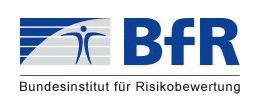Why Plagiarism Matters
Disclosure: Though I did not contribute to the compilation of the report, I was paid, as part of my consulting service, to provide a peer review of it, which I completed in November.

In 2017, the European Union held a divisive vote about whether to renew its approval for the weed killer glyphosate, which is commonly known by the trade name Roundup.
Despite concerns about the safety of the chemical and several countries voting against it, the EU voted to renew the license for glyphosate.
This was largely done based on support from a 2015 report created by the German Federal Institute for Risk Assessment (BfR when shortened from German) that found glyphosate was not carcinogenic. According to the report, the organization had evaluated all of the available research and concluded that there was no cause to reclassify the chemical as a carcinogen at that time.
However, shortly after the 2017 vote, many began to call into question the BfR report. Similarities between it and other studies, including unpublished industry studies, began to crop up. BfR denied these allegations, saying that it was a misunderstanding of how such reports are created, but the allegations continued.
This prompted a group of MEPs to commission a study of the BfR report, one that was completed by plagiarism expert Stefan Weber and biochemist Helmut Burtscher. The report, which was published earlier this week, found that slightly over half of the BfR report was plagiarism and much of that content came from studies produced by the Glyphosate Task Force, the coalition of pesticide companies that were submitting the application.
This has led to allegations that the BfR did not provide proper oversight or reach independent conclusions when compiling its report. This is something that the BfR strongly denies, saying that such copying is common practice when compiling such reports and that the term plagiarism is “not relevant in this context.”
Still, the report has sparked a fresh debate about the safety of glyphosate and its renewed approval in 2017. What will come of it, if anything, remains to be seen, but one thing is very clear: This story is an excellent example of why plagiarism and attribution matter and why these are issues we should care about just as much in 2019 as we did decades prior.
When the Source Matters

The problem with the discovery isn’t necessarily glyphosate is unsafe or that the findings of the BfR report are flawed. I have no expertise in this area and can’t offer any insight into the safety of glyphosate.
Instead, the issue is that the BfR was tasked with providing an independent analysis and, instead, presented language from industry-backed studies as their own.
While this copying may be very common, other regulatory agencies have drafted similar copy/paste reports, the simple truth is that most who read the report, including MEPs, likely believed they were reading the words of the BfR when they were not. Instead, they were words from those with a significant interest in the outcome of the study.
Once again, that doesn’t mean glyphosate is unsafe but it means that this report was given more weight than it would have if it had been properly cited. After all, if the BfR had acknowledged where the language came from, it would have avoided the plagiarism issue but readers would have likely been more skeptical of a report largely drafted from industry sources.
Some times, attribution really is little more than an ethical obligation. It’s a way to pay respect to the person whose work you are using and avoid being called a plagiarist.
Often times though, attribution is much more important. Attributing a credible source bolsters the argument where attributing to a weaker source hurts it. However, when attribution is omitted, the reader can’t draw that conclusion.
In these cases, plagiarism matters in an extreme way. It’s not an issue of cheating on an essay or infringing someone’s copyright, it’s an issue of giving the reader the information they need to make a judgment on an argument. On an issue as important as this, that’s critical information to have.
Bottom Line
It’s entirely possible, even probable, that the BfR did not do anything that wasn’t out of the norm for such regulatory agencies. Though there is debate and discussion about what the norms are, it’s clear that other agencies do use industry studies and often fail to cite them.
However, if it is a common practice, it shouldn’t be for much longer.
Attribution, at the end of the day, is information and withholding information is rarely a good practice in such matters.
Regardless of what one thinks about the safety of glyphosate and the issue at hand, it’s still disconcerting that MEPs and others making the decision didn’t have all of the information on this report when they voted to renew its approval.
In the end though, it’s unlikely that this plagiarism report will have any significant impact on the future of glyphosate. The debate over its safety is simply too complex and too divisive for any one report to move the needle much. Furthermore, the politics of the EU are such that sudden shifts are difficult.
My bigger hope is that this case can start a broader conversation about how such reports are compiled and presented. If we are to believe that plagiarism is irrelevant to these types of reports, then we need to change that and hold our governments accountable to that.
These are the exact types of reports where attribution is at its most important, not at its least and we need to make sure our regulators understand that.
Want to Reuse or Republish this Content?
If you want to feature this article in your site, classroom or elsewhere, just let us know! We usually grant permission within 24 hours.
